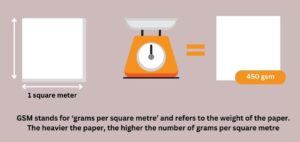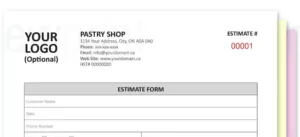Small businesses are a vital part of the UK economy, accounting for 99.3% of all private sector businesses and employing over 16 million people.
In this article, we’ll dive into key small businesses statistics in the UK, covering everything from their size and financial habits to their use of social media and technology.
The Size of Small Businesses Statistics UK
- There were an estimated 5.9 million small businesses in the UK in 2020.
- Micro businesses (employing fewer than 10 people) account for 96% of all businesses in the UK.
- Small businesses are responsible for 52% of all private sector turnover in the UK.
- The average turnover for a small business in the UK is £823,000.
- The construction sector has the highest number of small businesses in the UK.
- Small businesses in the UK face an average of 10 days of late payments per year.
- 23% of small businesses in the UK have been impacted by Brexit.
- The most common challenges facing small businesses in the UK are cash flow and late payments.
- 57% of small businesses in the UK use cloud computing services.
- 32% of small businesses in the UK use mobile devices for work purposes.
Small Business and Social Media Statistics
11. Small businesses in the UK are more likely to use social media for marketing than traditional advertising methods.
- Small businesses in the UK are more likely to use social media for customer service than email or phone.
- 71% of small businesses in the UK use social media to promote their products or services.
- Facebook is the most popular social media platform for small businesses in the UK.
- Small businesses that use social media have on average 20% more revenue than those that don’t.
- Instagram is the fastest-growing social media platform for small businesses in the UK.
- Small businesses in the UK are more likely to use social media for lead generation than larger businesses.
- 91% of small businesses in the UK believe social media is important for their business.
- Small businesses in the UK are more likely to use social media to connect with their local community.
- Social media advertising spending by small businesses in the UK is set to reach £2.2 billion by 2023.
Look at some of our most selling products: Business cards & Invoice books
Consumer Preference for Small Business Statistics
21. 59% of UK consumers prefer to buy from small businesses.
- 40% of UK consumers feel that small businesses offer better customer service than larger businesses.
- 53% of UK consumers feel that small businesses are more trustworthy than larger businesses.
- 35% of UK consumers are willing to pay more for products or services from small businesses.
- Small businesses in the UK are more likely to have loyal customers than larger businesses.
- 70% of UK consumers believe that small businesses are vital to the local community.
- 47% of UK consumers feel that small businesses are more likely to offer unique and innovative products.
- 49% of UK consumers believe that small businesses are more likely to prioritise ethical business practices.
- 60% of UK consumers say that supporting small businesses is important to them.
- Small businesses that prioritise customer service have on average 60% more revenue than those that don’t.
Also read our post on Business Name Ideas
Small Business Finance Statistics
31. Small businesses in the UK spend an average of 15 hours per week on administrative tasks.
- 90% of small businesses in the UK are profitable.
- Small businesses in the UK are responsible for 43% of all private sector employment.
Sure, here’s a rewritten version of the article without starting each subheading from one again and again:
Small businesses are a vital part of the UK economy, accounting for 99.3% of all private sector businesses and employing over 16 million people. In this article, we’ll dive into some key statistics about small businesses in the UK, covering everything from their size and financial habits to their use of social media and technology.
The Size of Small Businesses Statistics
- There were an estimated 5.9 million small businesses in the UK in 2020.
- Microbusinesses (employing fewer than 10 people) account for 96% of all businesses in the UK.
- Small businesses are responsible for 52% of all private sector turnover in the UK.
- The average turnover for a small business in the UK is £823,000.
- The construction sector has the highest number of small businesses in the UK.
- Small businesses in the UK face an average of 10 days of late payments per year.
- 23% of small businesses in the UK have been impacted by Brexit.
- The most common challenges facing small businesses in the UK are cash flow and late payments.
- 57% of small businesses in the UK use cloud computing services.
- 32% of small businesses in the UK use mobile devices for work purposes.
Small Business and Social Media Statistics
11. Small businesses in the UK are more likely to use social media for marketing than traditional advertising methods.
- Small businesses in the UK are more likely to use social media for customer service than email or phone.
- 71% of small businesses in the UK use social media to promote their products or services.
- Facebook is the most popular social media platform for small businesses in the UK.
- Small businesses that use social media have on average 20% more revenue than those that don’t.
- Instagram is the fastest-growing social media platform for small businesses in the UK.
- Small businesses in the UK are more likely to use social media for lead generation than larger businesses.
- 91% of small businesses in the UK believe social media is important for their business.
- Small businesses in the UK are more likely to use social media to connect with their local community.
- Social media advertising spending by small businesses in the UK is set to reach £2.2 billion by 2023.
Consumer Preference for Small Business Statistics
21. 59% of UK consumers prefer to buy from small businesses.
- 40% of UK consumers feel that small businesses offer better customer service than larger businesses.
- 53% of UK consumers feel that small businesses are more trustworthy than larger businesses.
- 35% of UK consumers are willing to pay more for products or services from small businesses.
- Small businesses in the UK are more likely to have loyal customers than larger businesses.
- 70% of UK consumers believe that small businesses are vital to the local community.
- 47% of UK consumers feel that small businesses are more likely to offer unique and innovative products.
- 49% of UK consumers believe that small businesses are more likely to prioritise ethical business practices.
- 60% of UK consumers say that supporting small businesses is important to them.
- Small businesses that prioritise customer service have on average 60% more revenue than those that don’t.
Small Business Finance Statistics
31. Small businesses in the UK spend an average of 15 hours per week on administrative tasks.
- 90% of small businesses in the UK are profitable.
- Small businesses in the UK are responsible for 43% of all private sector employment.
- The average annual wage for a small business employee in the UK is £24,000. 35. Small businesses in the UK are more likely to export than larger businesses.
- Small businesses in the UK spend an average of £4,000 per year on energy bills.
- Small businesses in the UK are less likely to have a formal business plan than larger businesses.
- Any additional sheets required in between are coated with clay on the front and dye on the back (known as a CFB Sheet – Coated Front & Back).
- The most common reason for small business failure in the UK is cash flow problems.
- Small businesses in the UK are more likely to offer flexible working arrangements than larger businesses.
Also Read: The Ultimate Guide To Naming Your Business
Characteristics and Habits of Small Business Owners
41. The average age of a small business owner in the UK is 49 years old.
- 25% of small businesses in the UK are owned by women.
- The most common type of small business in the UK is a sole trader or partnership.
- Small business owners in the UK work an average of 52 hours per week.
- Small business owners in the UK report high levels of job satisfaction and work-life balance.
- Small business owners in the UK are more likely to work from home than larger business owners.
- 46% of small business owners in the UK started their business to pursue a passion or interest.
- 52% of small business owners in the UK have no plans to retire.
- Small business owners in the UK are more likely to prioritise employee well-being than larger business owners.
- 36% of small business owners in the UK say that their biggest challenge is managing their workload.
Small Business Technology Statistics
51. Small businesses in the UK are more likely to use mobile banking apps than larger businesses.
- Small businesses in the UK are more likely to use online collaboration tools than larger businesses.
- Small businesses in the UK are more likely to use online accounting software than spreadsheets.
- 32% of small businesses in the UK use mobile devices for work purposes.
- Small businesses in the UK are more likely to use automation tools to streamline tasks.
- 54% of small businesses in the UK have a website.
- Small businesses in the UK are more likely to use social media for marketing than traditional advertising methods.
- 45% of small businesses in the UK have invested in cybersecurity measures.
- Small businesses in the UK are more likely to use project management software than spreadsheets.
- 57% of small businesses in the UK use cloud computing services.
The Future of Small Business Statistics
61. 75% of small business owners in the UK believe that technology will have a significant impact on their business in the next 5 years.
- Small businesses in the UK are becoming more diverse and inclusive, with a growing number of women, people of color, and LGBTQ+ entrepreneurs.
- The COVID-19 pandemic has accelerated the adoption of digital tools and remote working among small businesses in the UK.
- Small businesses in the UK are increasingly focused on sustainability and environmental responsibility.
- Small businesses in the UK are expected to continue to face challenges related to Brexit and economic uncertainty.
- Innovation and adaptability will be key to the success of small businesses in the UK in the coming years.
- 62% of small business owners in the UK believe that digital marketing will be a top priority in the next 5 years.
- Small businesses in the UK are expected to play a vital role in the post-pandemic economic recovery.
- The gig economy is expected to play an increasingly important role in the small business landscape in the UK.
- Small businesses in the UK are increasingly using data analytics and AI tools to make better business decisions.
Also Read: 10 Proven Psychological Pricing Hacks To Boost Your Business Sales
Final Words
Small businesses in the UK are a diverse and dynamic group, facing unique challenges and opportunities in the current economic landscape.
From their size and financial habits to their use of social media and technology, understanding the statistics and trends surrounding small businesses is essential for both small business owners and supporters.
By staying up-to-date with the latest data and trends, small business owners can better navigate the changing business landscape and ensure their long-term success.















